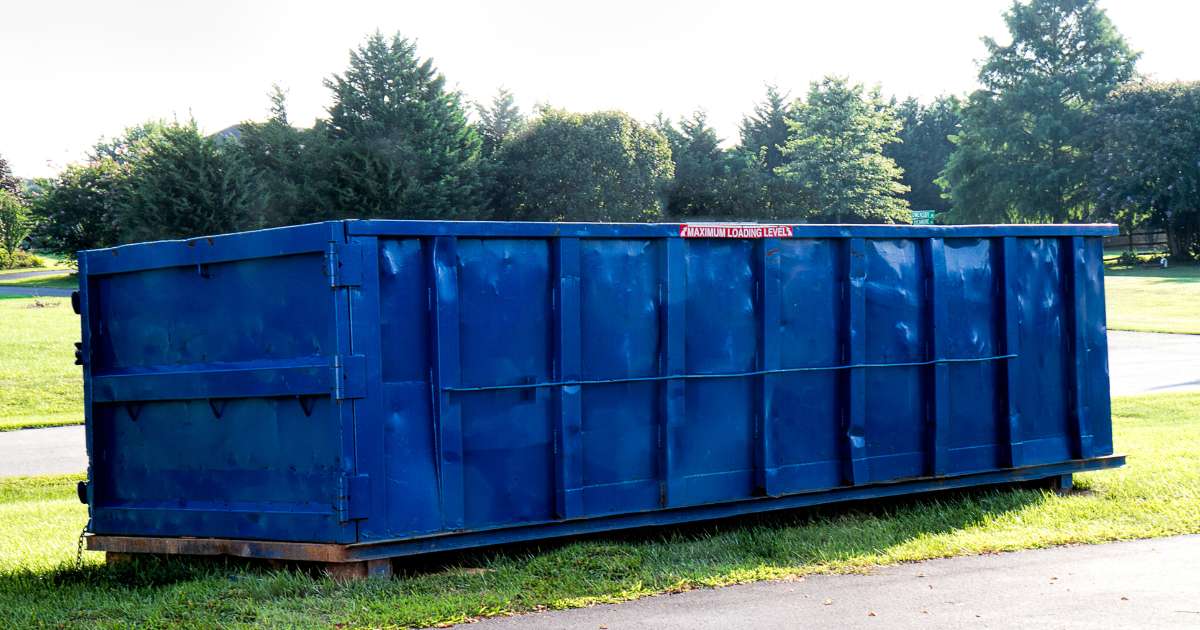The dumpster rental industry is a vital part of construction, renovation, and large-scale cleanup projects. However, navigating the myriad of options available can be daunting, especially for first-time renters or those with complex needs. This is where brokers come into play.
Dumpster rental brokers act as intermediaries between customers and dumpster rental companies, facilitating the process to ensure clients get the right dumpster at the best price, all while saving time and effort.
In this detailed guide, we’ll explore the multifaceted role of brokers in the dumpster rental business and how they can benefit both residential and commercial customers.
What Are Dumpster Rental Brokers?
Dumpster rental brokers are specialized third-party agents who connect customers with dumpster rental providers. Unlike rental companies that own and manage their own fleet of dumpsters, brokers do not have physical assets.
Instead, they leverage a vast network of partnerships with multiple dumpster rental companies to provide clients with a broad array of options.
This enables them to meet a variety of needs, from minor residential cleanups to major commercial construction projects. Brokers have extensive expertise in the dumpster rental industry, including local pricing trends, regulatory standards, and the reputations of nearby service providers. For more on local regulations, visit our page on what permits are required for dumpster rentals.
They use this expertise to match customers with the most appropriate and cost-effective solutions.
How Brokers Operate in the Dumpster Rental Industry?
Client Consultation:
The first step in a broker’s process is understanding the specific needs of the client. This involves a detailed consultation where the broker gathers information about the project, including:
Type of waste: Understanding whether the waste is construction debris, household junk, yard waste, or hazardous materials.
Project scope: Determining the volume of waste to estimate the appropriate dumpster size.
Rental duration: Establishing how long the dumpster will be needed, which can affect pricing and availability.
Location-specific factors: Considering factors such as access restrictions, permit requirements, or proximity to the rental company’s service area.

Sourcing and Matching:
Brokers use the gathered information to tap into their broad network and find dumpster rental companies that align with the client’s needs. This network typically encompasses local, regional, and national providers, offering the client competitive pricing and availability. Brokers then compare offers from various companies, considering:
Cost: Ensuring that the pricing fits within the client’s budget.
Availability: Confirming that the dumpster size and type are available for the desired rental period.
Reputation: Evaluating the service quality and reliability of the potential rental companies based on past experiences and customer reviews.
Negotiation and Booking:
Once the broker identifies the best options, they negotiate terms on behalf of the client. This can include securing lower rates, negotiating for additional services (like expedited delivery or extended rental periods), and ensuring that all aspects of the rental agreement are transparent. The broker then finalizes the booking, arranging the delivery and pickup schedules that align with the client’s project timeline.

Ongoing Support and Problem Resolution:
Throughout the rental period, the broker serves as the primary point of contact for any issues or changes. Whether the client needs to extend the rental, swap out a full dumpster for an empty one, or resolve disputes regarding fees or service quality, the broker handles all communications with the rental company. This ensures that the client can focus on their project without being bogged down by logistical concerns.
For tips on managing your rental, see our page on dumpster rental tips.
Post-Rental Follow-Up:
After the dumpster is picked up and the project is complete, brokers often follow up with clients to ensure their satisfaction. This post-rental service may include resolving any final billing issues or gathering feedback to improve future services.
Benefits of Using a Broker
Expertise and Industry Knowledge: Dumpster rental brokers are experts in the industry, with a deep understanding of the nuances involved in renting dumpsters. This expertise is particularly valuable for clients unfamiliar with the process, as brokers can guide them through decisions that might otherwise be overwhelming, such as choosing the right dumpster size or navigating local permit requirements.
If you’re wondering about additional costs associated with your rental, take a look at our guide on hidden fees in dumpster rentals.
Wide Selection of Options: By working with multiple rental companies, brokers provide clients with a wider selection of dumpster sizes, types, and service levels than they might find on their own. This is especially beneficial in areas with limited local providers or for projects requiring specialized dumpsters, such as those for hazardous waste.
Cost Savings: While brokers charge for their services, they often save clients money by securing better rates through bulk purchasing power or long-standing relationships with rental companies. They can also help clients avoid hidden fees by thoroughly reviewing rental agreements and ensuring transparency.
Time Efficiency: For busy contractors, homeowners, or business owners, time is a precious resource. Brokers save clients significant time by handling all aspects of the dumpster rental process, from sourcing and negotiating to managing logistics and resolving issues.
Risk Mitigation: Navigating the dumpster rental market without a broker can expose clients to risks, such as choosing an unreliable provider or incurring unexpected costs. Brokers mitigate these risks by vetting rental companies and ensuring that all agreements are clear and fair.
Potential Drawbacks of Using a Broker
Service Fees: The primary drawback of using a broker is the additional cost associated with their services. While brokers can often offset this cost through negotiated savings, some clients may prefer to avoid the extra expense by dealing directly with rental companies.
Reduced Direct Control: When using a broker, clients may have less direct control over the rental process, as the broker handles most communications with the rental company. This could lead to a feeling of detachment from the process, particularly for those who prefer to be hands-on.
Variable Quality of Service: The quality of service provided by brokers can vary widely. Some brokers are highly experienced and well-connected, offering excellent service, while others may lack the necessary industry knowledge or relationships to provide optimal results. Clients should carefully research brokers before engaging their services.
If you’re concerned about pricing, learn more about dumpster rental costs for a day or weekly rentals.

How to Choose a Reliable Dumpster Rental Broker?
Verify Experience and Reputation: Choose brokers with a solid track record in the dumpster rental industry. Check online reviews, client testimonials, and references from past customers. A broker with a history of successful projects and satisfied customers is more likely to provide reliable service.
Understand Fee Structures: Transparency is key when it comes to broker fees. Ensure that you fully understand how the broker’s fees are calculated, whether they are flat fees or a percentage of the rental cost. Some brokers may include their fee within the overall rental price, while others charge separately.
Evaluate Their Network: A good broker should have a diverse and well-established network of dumpster rental companies. Ask about the range of providers they work with and whether they have partnerships with reputable companies in your area.
Assess Customer Service: The quality of customer service is a critical factor in choosing a broker. Evaluate their responsiveness, willingness to answer questions, and overall communication style during your initial interactions. A broker who is attentive and informative from the outset is likely to provide strong support throughout the rental process.
Frequently Asked Question
How does using a broker benefit me?
Employing a broker can help you save both time and money. Brokers have industry expertise, access to a wide network of rental companies, and can often negotiate better rates on your behalf. They also handle all the logistics, making the rental process smoother and less stressful.
Are there any additional costs when using a broker?
Yes, brokers typically charge a fee for their services, which may be a flat fee or a percentage of the rental cost. However, the savings they negotiate and the convenience they provide often offset this additional cost.
Can a broker help with obtaining permits for dumpster rental?
Yes, many brokers can assist with obtaining the necessary permits for placing a dumpster on public property, such as a street or sidewalk. They are familiar with local regulations and can ensure that you remain compliant, saving you the hassle of navigating permit requirements yourself.
Will I have direct contact with the dumpster rental company?
Typically, your broker will handle most communications with the rental company. However, they should keep you informed at every step and be your main point of contact for any issues or questions that arise during the rental process.
How do I choose a reputable dumpster rental broker?
To choose a reputable broker, research their experience and reputation. Look for brokers with positive reviews, a strong network of rental companies, and transparent fee structures. Good customer service is also crucial, so assess how responsive and helpful they are during your initial interactions.
Do brokers offer different dumpster sizes and types?
Yes, brokers typically have access to a wide range of dumpster sizes and types through their network of rental companies. This allows them to match the right dumpster to your specific project needs, whether it’s for household junk, construction debris, or hazardous materials.
Can a broker help with same-day dumpster rentals?
Depending on their network and availability, some brokers may be able to arrange same-day dumpster rentals. It’s best to communicate your needs clearly and as early as possible so the broker can work to meet your timeline.
Conclusion
Brokers play an integral role in the dumpster rental business, offering a blend of convenience, expertise, and cost-efficiency. They bridge the gap between clients and rental companies, ensuring that customers receive the best possible service tailored to their specific needs.
While there are some potential drawbacks to using a broker, such as additional fees and reduced direct control, the benefits often outweigh these concerns, particularly for those unfamiliar with the industry or managing large-scale projects.
By carefully selecting a reputable broker, clients can enjoy a smoother, more efficient dumpster rental experience that aligns with their budget and project requirements.
If you’re in Fort Worth and need local insights, visit our Fort Worth dumpster rental page for more details.
